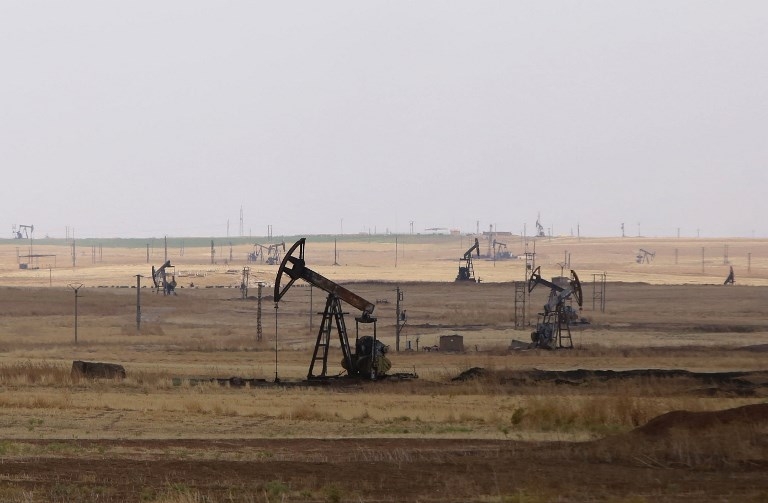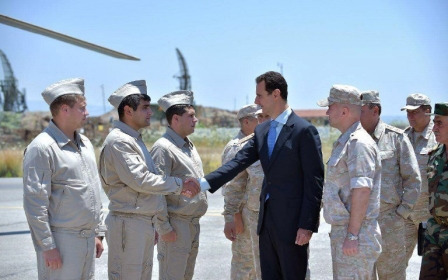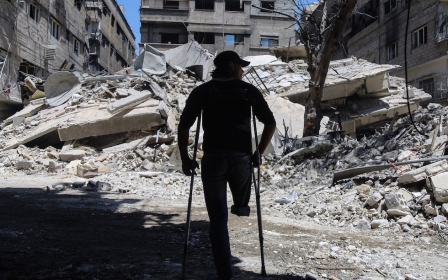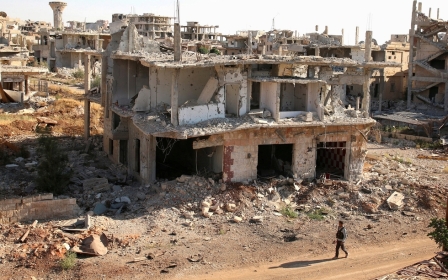Syrian army takes more oil fields from Islamic State in Raqqa province

The Syrian army, backed by heavy Russian air strikes, seized a string of oil wells in southwest Raqqa province on Saturday, as retreating Islamic State (IS) group militants battled to defend their remaining territory in the country.
State-owned Ikhbariyah television cited a military source as saying the army had taken control of Wahab, al-Fahd, Dbaysan, al-Qseer, Abu al-Qatat and Abu Qatash oil fields and several other villages in the desert area that lies in the southwest of Raqqa province.
The seized oil fields lie south of the town of Rasafa and its oil wells, which the army took last month from the militants in their first major territorial gains inside the province.
The army and Iranian-backed militias have in the past few months been advancing east of Aleppo city and seizing swaths of territory west of the Euphrates River that militants have pulled out of to defend their de facto capital Raqqa, where they are now battling US-backed troops inside the city.
The latest gains tighten the army's grip on a bulge of territory stretching from eastern Hama province to eastern Homs and the edge of Raqqa and Deir Zor provinces, the Syrian Observatory for Human Rights war monitor said.
The monitor said the Russian air force intensified its strikes on several targets and towns held by the militants in the area including Uqairbat, a target of Russian cruise missiles fired from warships in the Mediterranean at the end of May.
The army's next goal is to retake the town of Sukhna, a gateway to the eastern province of Deir Zor, which borders Iraq and is likely to be the militants' last major bastion in Syria if Raqqa falls.
The army and its Iranian-backed allies have also announced in the past few days steady gains in the desert northeast of the ancient city of Palmyra with their capture of the Hail gas field, which brought them to about 18km south of Sukhna.
Army's next goal is to retake the town of Sukhna, a gateway to the eastern province of Deir Zor, which borders Iraq
Still, heavy fighting has continued in the last 48 hours near Hail and the nearby Arak gas field, which the Syrian army took last month, both the Syrian Observatory for Human Rights and militant websites said.
The army and Iranian-backed militias have been engaged in a campaign since May to fill the void left by the retreat of militants in areas they once controlled in the vast eastern Syrian desert, which stretches all the way from central Syria to the southeastern border with Iraq and Jordan.
In the southeastern desert, heavy fighting continued between the army and its Iranian backed allies on one side and the Western-backed Free Syrian Army rebels in the rugged eastern countryside of the city of Sweida in southern Syria.
The army said it had captured most of these areas that are also near the border with Jordan, while the rebels said they had inflicted losses on Lebanon's powerful Hezbollah group and Iraqi Shia militias.
Middle East Eye propose une couverture et une analyse indépendantes et incomparables du Moyen-Orient, de l’Afrique du Nord et d’autres régions du monde. Pour en savoir plus sur la reprise de ce contenu et les frais qui s’appliquent, veuillez remplir ce formulaire [en anglais]. Pour en savoir plus sur MEE, cliquez ici [en anglais].




